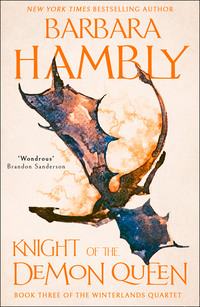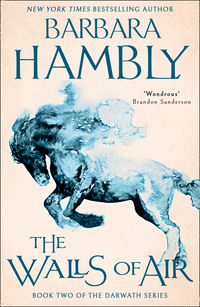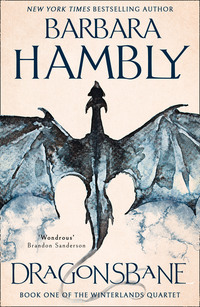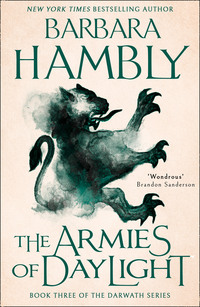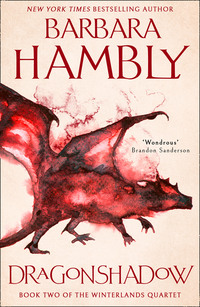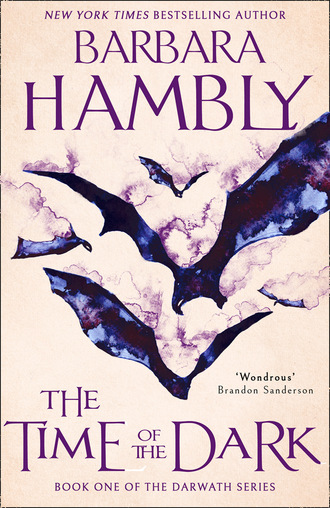
Полная версия
“Know it?” The King laughed bitterly, facing the wizard like a beast brought to bay, his eyes dark with the memory of ancient outrage. “I remember it. I remember it as clearly as if it had happened to me, instead of to my however-many-times-great-grandfather.” He strode to stand over the wizard, shadowing him like a blighted tree, the single lamp flinging the great distorted shape of him to blend with the crowding dimness of the room. “And he remembers, too.” His hand moved toward the crib, the vast shadow-hand on the wall its dark echo, toward the child asleep within. “Deep in his baby mind those memories are buried. He’s barely six months old – six months, yet he’ll wake up screaming, rigid with fear. What can a child that young dream of, Ingold? He dreams of the Dark. I know.”
“Yes,” the wizard agreed, “you dreamed of it, too. Your father never did – in fact, I doubt your father ever feared or imagined anything in his life. Those memories were buried too deep in him – or perhaps there was simply no need for him to remember. But you dreamed of them and feared them, although you did not know what they were.”
Standing in the cool draft of the window, Gil felt that bond between them, palpable as a word or a touch: the memory of a gawky, dark-haired boy waked screaming from nameless nightmares, and the comfort given him by a vagabond wizard. Some of the harshness left Eldor’s face, and the grimness faded from his voice, leaving it only sad.
“Would I had remained ignorant,” he said. “We of our line are never entirely young, you know. The memories that we carry are the curse of our race.”
“They may be the saving of it,” Ingold replied. “And of us all.”
Eldor sighed and moved back to the crib in reflective silence, his slim, strong hands clasped lightly behind his back. But he was not now looking down at the child asleep. His eyes, brooding away into the shadows, lost their sharpness, focusing on times beyond his lifetime, on experience beyond his own.
After a while he said, “Will you do me one last service, Ingold?”
The old man’s eyes slid sharply over to him. “There is no last.”
The lines of Eldor’s face creased briefly deeper with his tired smile. He was evidently long familiar with the wizard’s stubbornness. “In the end,” he said, “there is always a last. I know,” he went on, “that your power cannot touch the Dark Ones. But it can elude them. I’ve seen you do it. When the night comes that they rise again, your power will allow you to escape, when the rest of us must die fighting. No—” He raised his hand to forestall the wizard’s next words. “I know what you’re going to say. But I want you to leave. If it comes to that, as your King, I order you to. When they come – and they will – I want you to take my son Altir. Take him and flee.”
The wizard sat silent, but his beard bristled with the set of his jaw. At last he said, “For one thing, you are not my King.”
“Then as your friend, I ask it,” the King said, and his voice was very low. “You couldn’t save us. Not all of us. You’re a great swordsman, Ingold, perhaps the greatest alive, but the touch of the Dark is death, to a wizard as well as to any other. Our doom is surely upon us here, for they will come again, as sure as the ice in the north, and there can be no escape. But you can save Tir. He’s the last of my line, the last of Dare of Renweth’s line – the last of the lineage of the Kings of Darwath. He’s the only one in the Realm now who will remember the Time of the Dark. History itself has all but forgotten; no record at all exists of that time, bar a mention in the oldest of chronicles. My father remembered nothing of it – my own memories are sketchy. But the need is greater now. Maybe that has something to do with it – I don’t know.
“But I know, and you know, that three thousand years ago the Dark Ones came and virtually wiped humankind from the face of the earth. And they departed away again. Why, Ingold, did they depart?”
The wizard shook his head.
“He knows,” Eldor said softly. “He knows. My memories are incomplete. You know that; I’ve told you a dozen times. He’s a promise, Ingold. I’m only a failed hope, a guttered candle. Somewhere in his memory, the heritage of the line of Dare, is the clue that all the rest of us have forgotten, that will lead to the undoing of the Dark. If I ever had it, it’s buried too deeply; and he’s the only other one. Him you must save.”
The wizard said nothing. The quiet flame of the lamp, pure and small as a gold coin, reflected in his thinking eyes. In the stillness of the room, that tiny gleam was unmoving, the pool of waxy gold that lay around the lamp on the polished surface of the table as steady and sharply defined as a spotlight. At length he said, “And what about you?”
“A King has the right,” Eldor replied, “to die with his kingdom. I will not leave the final battle. Indeed, I do not see how I could. But for all the love you have ever borne me, do this thing for me now. Take him, and see him to a place of safety. I charge you with it – it is in your hands.”
Ingold sighed and bent his head, as if to receive a yoke, the gold of the lamplight limning his silver hair. “I will save him,” he said. “That I promise you. But I will not desert you until the cause is hopeless.”
“Do not trouble yourself,” the King said harshly. “The cause is hopeless already.”
Deep below the dark foundations of the Palace a hollow booming resounded, like the stroke of a gigantic drum, and Gil felt the sound vibrate through the marble of the floor. Eldor’s head jerked up and around, his long mouth hardening in the smooth gold and shadows, his hand flinching automatically to the hilt of his jeweled sword, but Ingold only sat, a statue of stone and darkness. A second booming shivered the weight of the Palace on its deep-found piers, as if struck by a great fist. Breathless in the closeness of that peaceful room, three people waited for the third stroke. But no third stroke fell; only a cold, creeping horror that prickled Gil’s hair seemed to seep into the silence from below, the wordless threat of unknown peril.
Finally Ingold said, “They will not come tonight.” Through his weariness, his tone was certain. “Go to the Queen and comfort her.”
Eldor sighed; like a man released from a spell that had turned him to stone, he shifted broad, rawboned shoulders to relax the tension from his back. “The landchiefs of the Realm meet in an hour,” he excused himself tiredly, and rubbed at his eyes, his fingers grinding the dark smudges that ringed them. “And I should speak with the Guards before then about moving provisions out of the old vaults under the Prefecture, in case our supply lines are cut. But you’re right, I should go to see her … though first I should speak with the Bishop about bringing Church troops into the city.” He began to pace again, the restless movement of an active man whose mind forever outran his body. Ingold remained seated in the carved ivory chair with its little gilded deer-hoof feet, and the flame before him moved with Eldor’s motion, as if it, too, were drawn by the restless vitality of the man. “Will you be at the council?”
“I have given all the help and advice I can,” Ingold replied. “I shall remain here, I think, and try again to get in touch with the wizards at Quo. Tir may not be our only answer. There are records in the Library at Quo, and traditions handed down from master to pupil over millennia; knowledge and the search for knowledge are the key and the heart of wizardry. Tir is an infant. By the time he learns to speak, it may be too late for what he has to tell us.”
“It may already be too late.” The flame bowed with the soft closing of the door behind Eldor.
Ingold sat for a time after he had gone, brooding silently on that pure small slip of fire. The glow of it played across his shadowed eyes, touched the knuckles of his folded hands – blunt-fingered, powerful hands, nicked all over with the scars of old sword cuts and marked on one heavy wrist with an age-whitened shackle gall. Then he rubbed his eyes tiredly and looked straight into the deep hollow of shadow where Gil stood, framed by the intricately screened filigree of the pillars beside the window. He beckoned to her. “Come here,” he said gently, “and tell me about yourself. Don’t be afraid.”
“I’m not afraid.” But as she took a hesitating step forward, the lamplight darkened, and the whole room was lost to her sight in the foggy mazes of sleep.
Gil told no one about the third dream. She had spoken of the second one to a woman friend who had listened sympathetically but hadn’t, she felt, understood. Indeed, she didn’t understand it herself. But the third dream she mentioned to no one, because she knew that it had been no dream. The certainty troubled her. Maybe, she told herself, she would tell her friend about it one day, when enough time had passed so that it was no longer important. But for now she locked it away, with several other irrelevant matters, in her secret heart.
Then one night she woke from a sound sleep standing up. She saw, as her eyes cleared, that she was in a sunken courtyard in that deserted city. The great houses surrounded her like lightless cliffs, and moonlight drenched the square, throwing her shadow clearly on muddy and unwashed flagstones under her bare feet. The place was deserted, like a courtyard of the dead. Where the ghastly silver light blanched the facade of the east-facing house, she saw that its great doors had been blown off their hinges from within and lay in scattered pieces about her feet.
From out of that empty doorway, a sudden little wind stirred, restless and without direction, turning back on itself in a small scritching eddy of fallen leaves. She sensed beyond the blind windows and vacant doors of that house a sound, a fumbling movement, as if dark shifted through dark, bumbling eyelessly at the inner walls, seeking a way out. She swallowed hard, her breath quickening in fear, and she glanced behind her at the arched gateway that led out into the deserted street beyond. But the gate was dark, and she felt a clammy, unreasoning terror of walking beneath the clustered shadows in the high vault of the enclosed passage.
The wind from the house increased, chilling her. She edged her way back toward the dark gate, feeling herself beginning to shiver, her feet icy on the marble pavement. The silence of the place was terrible; even the screaming flight of that first night would have been more welcome. Then she had been in a crowd, though unseen; then she had not been alone. Silent and terrible, the lurker waited on the threshold of that dark house, and she knew that she must flee for her life. She would not be able to waken out of this dream; she knew that she was already awake.
Then, out of the corner of her eye, she had the brief impression of something moving, low to the ground, in the shadows by the wall. Swinging around, she saw nothing. But she thought that the darkness itself was reaching out toward her, damping even the moonlight.
Turning, she fled, her black shadow running on the ground before her in the ivory moonlight. Broken stone and iron gashed her bare feet as she plunged into the black arch of the gate, but the pain was swallowed in icy fear as thin, aimless winds tugged at her – as she sensed, rather than saw, something move in the utter blackness over her head. She stumbled into the street outside, her bleeding feet leaving red blotches on the wet slime of the cobbles, running, running in heart-bursting panic through the empty boulevards of the city that she now saw lay half in ruins, the silent pavements cluttered with rubble and new-stripped human bones. Shadows, black and as staring as walls of stone, confronted her with new horrors at every turn; gargoyle shapes of terror lurked under every eave and fallen rooftree. The only sounds in all that empty city of freezing night were the moist, pattering slap of her bare feet on stone and the gasp of her laboring breath, the only movements her own frenzied flight and that of her jerking, leaping shadow, and, behind her, the drifting movement of wind and darkness pouring after her like smoke. She fled blindly down black canyons, feet numb, legs numb, stumbling over she knew not what, knowing by instinct in which direction the Palace lay, knowing that Ingold the wizard was there and that Ingold would save her.
She ran until she woke, sobbing, clutching her pillow in the dark, soaked with cold terror-sweat, her body aching with exhaustion. Only gradually did the filtered moonlight register the familiar things of the Clarke Street apartment, alien to her wondering eyes, as if both worlds were now equally hers. She forced her gasping breath to slow, forced her mind to think; her legs smarted; her feet were like ice beneath the covers. In a confused clutching at the straws of sanity she thought, That’s why I dreamed of having cold feet; because my feet are cold. She groped for the light with trembling fingers, turned it on, and lay there shivering, repeating to herself the desperate, unbelieving litany: It was only a dream, it was only a dream. Please, God, let it be only a dream.
But even as she whispered, she felt the sticky wetness matting her numb toes. Reaching down, unwillingly, to warm them, she brought her fingers back streaked with fresh blood, from where she had cut her feet on the broken stone in the gateway.
Five nights later, the moon was full.
Its light woke Gil, startling her out of sleep into a split-second convulsion of fear, until she recognized the night-muted patterns of familiar things and realized she was in her place on Clarke Street. Waking suddenly in the night, she was seldom sure anymore. She lay still for a time, listening open-eyed in the darkness, waiting for the quick flood of panic to subside from her veins. White moonlight lay on the blanket beside her, palpable as a sheet of paper.
Then she thought, Dammit, I forgot to put the chain on the door.
This was purely a formality, a bedtime ritual; the apartment had a regular lock and, moreover, the neighborhood was a quiet one. She almost decided to forget the whole thing, roll over, and go back to sleep; but after a minute, she crawled out of bed, shivering in the cold, and groped her peacock kimono from its accustomed place on the floor. Wrapping it about her, she padded silently into the dark kitchen, her feet finding their way easily. Her hand found the light switch by touch in the darkness and flicked it up.
The wizard Ingold was sitting at the kitchen table.
Absurdly, Gil’s first thought was that this was the only time she’d seen him in decent lighting. He looked older, wearier, the brown and white of his homespun robes faded and stained and shabby, but he was essentially the same fierce, gentlemanly old man she knew from her dreams: the advisor of the dark King; the man whose face she’d seen reflected in the foxfire glow of his sword, striding down to meet the darkness.
This is stupid, she thought. This is crazy. Not because she was seeing him again – for she’d known all along that she would – but because it was in her apartment, her world. What the hell was he doing here if it wasn’t a dream? And she knew it wasn’t. She glanced automatically around the kitchen. The supper dishes – and the previous night’s supper dishes – were piled unwashed on the counter, the table top invisible under a litter of apple cores and index cards, cups of moldering coffee and sheets of scribbled notebook paper. Two of her old T-shirts were dumped over the back of the chair on which Ingold sat. The seedy electric clock behind his head read just past three. It was all too squalidly depressing to be anything but real – she was definitely neither asleep nor dreaming.
“What are you doing here?” she asked.
The wizard raised shaggy eyebrows in surprise. “I came to talk to you,” he replied. She knew the voice. She felt that she had always known it.
“I mean – how did you get here?”
“I could give you a technical explanation, of course,” he said, and the smile that briefly illuminated his face turned it suddenly very young. “But would it matter? I crossed the Void to find you, because I need your help.”
“Hunh?”
It was not the kind of response best suited to what she’d read of dealing with wizards, but Ingold’s eyes twinkled with fleeting amusement. “I would not have sought you out,” he told her gently, “if I didn’t.”
“Uh—” Gil said profoundly. “I don’t understand.” She started to sit down opposite him, which involved clearing two textbooks and the calendar section of the Times off the chair, then paused in a tardy outburst of hospitality. “Would you like a beer?”
“Thank you.” He smiled, and gravely studied the opening instructions inscribed on the top of the can. For a first time, he didn’t do badly.
“How could you see me?” she asked, sliding into her chair as he shook the foam off his fingers. “Even when it was a dream, even when no one else could – King Eldor and the Guards at the gate – you could. Why was that?”
“It’s because I understand the nature of the Void,” the wizard said gravely. He folded his hands on the table, the blunt, scarred fingers idly caressing the gaudy aluminum of the can, as if memorizing its shape and feel. “You understand, Gil, that there exists an infinite number of parallel universes, meshed in the matrix of the Void. In my world, in my time, I am the only one who understands the nature of the Void – one of a bare handful who even suspects its existence.”
“And how did you learn about it, much less how to cross it, if no one else in your world knows?” Gil asked curiously.
The wizard smiled again. “That, Gil, is a story that would take all night to do justice to, without advancing the present situation. Suffice it to say that I am the only man in perhaps five hundred years who has been able to cross the curtain that separates universe from universe – and having done so, I was able to recognize the imprint of your thoughts, your personality, that had been drawn across the Void by the mass vibration of worldwide panic and terror. I believe there are a very few others in your world who, for whatever reason, be it psychic or physical or purest coincidence, have felt, from across the Void, the coming of the Dark. Of them all, you are the only one with whom I have been able to establish contact. It was seeing you, speaking to you, and then having you materialize not only in thought but in body, that made me understand what is happening with regard to the Void.”
Outside, a truck rumbled by on Clarke Street, its sound muffled with distance and the night. Somewhere in the apartment building, a toilet flushed, a faint echoing gurgle along the pipes. Gil stared down at the table for a time, her eye automatically noting her own jagged black handwriting spelling out cryptic notes with regard to the upkeep of fourteenth-century bridges, then looked up again at the wizard calmly drinking beer across from her, his staff leaned against the wall at his side.
She asked, “What is happening with the Void?”
“When I spoke with you in Gae,” Ingold went on, “I realized that our worlds must lie in very close conjunction at this time – so close that, because of the psychic crisis, a dreamer could literally walk the line between them and see from one into the next. This is both a rare and a temporary occurrence, a one-in-a-million chance for two worlds to drift so close. But it is a situation that I can use to my advantage in this emergency.”
“But why did it happen now, at the time of crisis?” Gil asked, the harsh electric glare rippling in the embroidery of her gaudy sleeves as she leaned forward across the table. “And why did it happen to me?”
He must have caught the suppressed slivers of uneasiness and fear of being singled out in her voice; when he replied he spoke gently. “Nothing is fortuitous. There are no random events. But we cannot know all the reasons.”
She barely hid a smile. “That’s a wizard’s answer if I ever heard one.”
“Meaning that mages deal in double talk?” His grin was impish. “That’s one of our two occupational hazards.”
“And what’s the other one?”
He laughed. “A deplorable tendency to meddle.”
She joined him in laughter. Then after a moment she grew quiet and asked, “But if you’re a wizard, how could you need my help? What help could I possibly give you that you couldn’t find for yourself? How could I help you against – against the Dark? Who is, or what is, the Dark?”
He regarded her in silence for a moment, judging her, testing her, watching her out of blue eyes whose surface brightness masked a depth and pull like the ocean’s. His face had grown grave again, settled into its sun-scorched lines. He said, “You know.”
She looked away, seeing in her unwilling mind monolithic bronze doors exploding off their hinges; seeing shadows that ran behind her, inescapable as ghostly wolves. She spoke without meeting his eyes. “I don’t know what they are.”
“Nor does anyone,” he said, “unless it’s Lohiro, the Master of Quo. It’s a question whose answer I wish I had never been set to seek, a riddle I’m sorry I have to unravel.
“What can I say of the Dark, Gil? What can I say that you don’t know already? That they are the sharks of night? That they pull the flesh from the bones, or the blood from the flesh, or the soul and spirit from the living body and let it stumble mindlessly to an eventual death from starvation? That they ride the air in darkness, hunt in darkness, and that fire or light or even a good bright moon will keep them away? Would that tell you what they are?”
She shook her head, hypnotized by the warm roughness of his voice, caught by the intensity of his eyes and by the horror and the memory of even more appalling horrors that she saw there. “But you know,” she whispered.
“Would to God I did not.” Then he sighed and looked away; when he turned his head again, there was only that matter-of-fact self-assurance in his face, without the doubt, or the fear, or the loathing of what he knew.
“I – I dreamed of them.” Gil stumbled on the words, finding it unexpectedly more difficult to speak of that first forerunning dream to one who understood than to one who did not. “Before I ever saw them, before I ever knew what they were. I dreamed about a – a vault, a cellar – with arches going in all directions. The floor was black and smooth, like glass; and in the middle of that black floor was a slab of granite that was new and rough, because nobody ever walked on it. You said they came from – from beneath the ground.”
“Indeed,” the wizard said, looking at her with an alert, speculative curiosity. “You seem to have sensed their coming far ahead of its time. That may mean something, though at the moment I’m not sure … Yes, that was the Dark, or, rather, the blocked-up entrance to one of their Nests. Under that granite slab – and I know the one you’re talking about – is a stairway, a stairway going downward incalculable depths into the earth. It was with the stairways, I believe, that it all began.
“For the stairways were always there. You find representations of them in the most ancient prehistoric petroglyphs: vast pavements of black stone and, in the midst of them, stairs descending to the deepest heart of the earth. No one ever went down them – at least, no one who came back up again – and no one knew who built them. Some said it was the titans of old, or the earth-gods; old records speak of the places as being awesome, full of magic. For a long time they were considered to be lucky, favored by the gods – the old religion built temples over them, temples which became the centers of the first cities of humankind.
“All this was millennia ago. Villages grew to towns and then to great cities. The cities united; states and realms spread along the rich valleys of the Brown River, on the shores of the Round Sea and the Western Ocean, and in the jungles and deserts of Alketch. Civilization flowered and bore its fruits: wizardry, art, money, learning, war. Records of that time are so scarce as to be almost nonexistent. Only beguiling fragments of chronicles remain, mostly in the Library at Quo, a teasing sliver of a civilization of great depth and richness, of sublime beauty and wisdom and truly foul decadence, a society that parented first wizardry and then the Church and the great codes of civil law.


